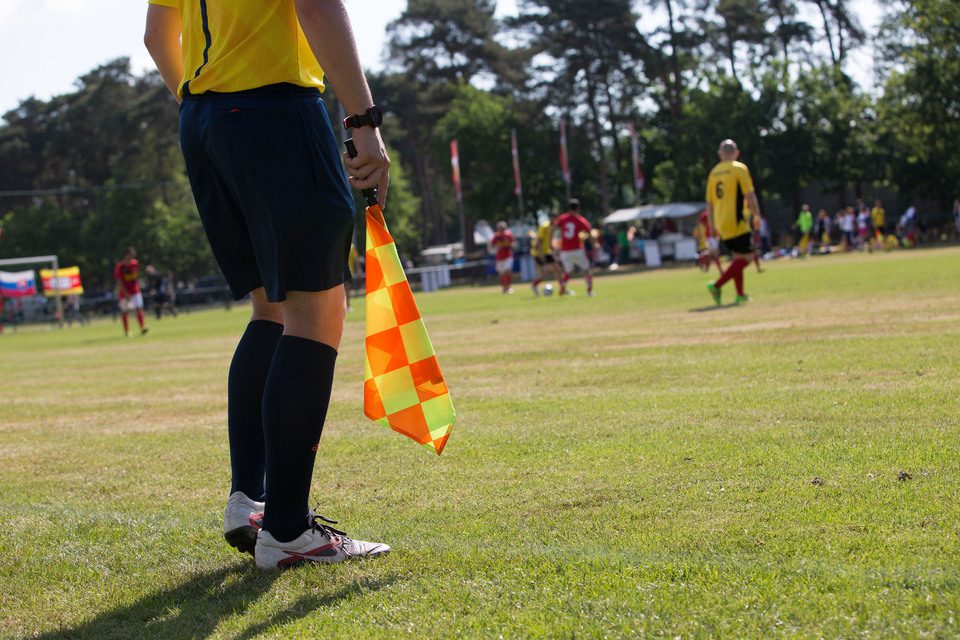Keep communication with headsets simple
Belgianreferee here, aka Mitch Das from Belgium and this is my second blogpost. I have been working with the AXIWI communication set for a few months now and I must say that I am really getting used to it. In the beginning it is strange because you have an extra input of information in your ear. But after a couple of games it isn’t strange anymore but a useful tool that will result in a better refereeing performance.
- Take enough time for your set up and instructions
- Keep it simple
- Use specific words to communicate
- Don’t use negative communications
- Try to be uniform in instructions
In this blogpost I will come back to the most important tip I gave: Keep it (communication) simple!

“Logical and simple communication will lead to fast and clear communication”
Preparation
In a game it is always important to keep your communication with your referee team simple. If your communication is to difficult, you are distracted from the game and might miss some crucial moments that can effect your performance. The first thing that needs to be done is your preparation. Make sure you have enough time to set up the communication system, so you have some time left to make some good agreements with your assistant referees (AR’s). If you don’t make agreements during your preparation, your communication during the game will be more difficult.
Clear communication
While making your agreements with your AR’s, try to be as clear as possible, especially if your AR’s are not familiar with the use of communication systems. In this situation I would advice you to keep your instructions to a basic level. Like I said before, your agreements must be as clear as possible. If you expect very detailed things from AR’s that have never used communication systems, I can guarantee you that mistakes will be made! If your AR’s are familiar with communication systems it is important that your agreements are simple. This means that the things that need to be communicated are logical so you don’t have to think twice before saying something. Logical and simple communicating will lead to fast and clear communication.
Examples of clear and logical communication:
- At a throw in: mention the name of the club or the colour of the shirts, who can throw in. Be sure you agreed about what you say.
- What you say when a defender makes a foul in the penalty area; do you say ‘foul’ or ‘penalty’. And what do you say when the offensive player makes a foul? Things to agree about.
- And what do you say at which moment (timing) to your colleague when one of the players is offside?
Better game management
During your game, you have to stick to your agreements. If your AR’s notice that your communication is exactly how you said that it would be, they will have more confidence in using it the same way. You will notice that in the beginning of a game, AR’s who are not used to communication systems, will be shy but with giving them that little piece of confidence they will open up and will effectively use the communication system. In this case you as a referee will have a lot of advantages in your game, you will be able to reduce mistakes and you will have a better management of the game.
This is how I try to make my agreements and instructions as simple as possible. These are small things that sounds very logical but in reality you need to pay enough attention to it. I hope that with sharing my experience I will be able to help you as well. If you have further questions or if you have a tips for me, you can always contact me on my Instagram account instagram.com/belgianreferee.
Good luck with your next games!
Best regards,



